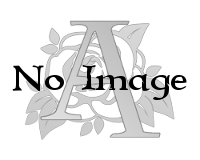Senkyou
| Senkyou | |
|---|---|

| |
| Culture | |
| Pronunciation | Sen-key-oh |
| Nicknames | Senks (Foreign), Senjin (Local) |
| Origins | Kitsuja Villages |
| Races | Human, Kitsune |
| Emphasis | Tradition, Feudal Service, Mannerisms |
| Languages | Kusanji |
| Major Cities | Temarai, Yumiko, Hayamashi, Haru |
lorem ipsum
Contents
History
Society
Naming Customs
Family Structure
Martial Responsibility
All families in the Senkyou Feudal States are expected to provide what is called martial responsibility to their village or daimyo. Peasant and artisan families serve villages, while samurai directly serve their daimyo. This responsibility entails going into combat or war whenever the village or daimyo calls for it. One member of every family is required to provide martial service, however it does not matter what gender they are only that they are capable of combat. If the appointed individual in the family is killed by no matter what means, the family is expected to provide another candidate to assume martial responsibility unless the last adult is female and caring for children under the age of 8. For this reason all individuals of this culture are expected to learn the entire standard set of martial weapon skills which mainly consists of the bow, spear, and sword fighting forms. It is common for there to be children older then 8 without any living parents, having died in martial service.
Samurai families have an even greater martial responsibility to uphold. Every member of a samurai family is required to serve their daimyo, with women being a semi-exception. Women in samurai families are expected to marry as soon as they come of age and have a child, and as soon as that child is age 16 the woman is expected to serve the daimyo in martial service. The woman is not allowed to have more then one child unless they have twins or triplets. There have been some cases where a member of a samurai family refuses to serve and runs away, resulting in the rest of the family being executed for tarnishing the honor of their family.
Gender Roles
Both genders have equivalent standing and interchangeable roles within Senkyou society. This is attributed to the founders of this culture being migrants from Exodia, which was well known for being gender equivalent. It is usually the male head of the family which assumes martial responsibility to their village, but in cases where the male head is dead or absent the female head is expected to assume martial responsibility if they are not caring for children. While men and women usually favor different weapons and techniques to best fit their physiology, they are all required to know the entire standard set of martial weapons skills.